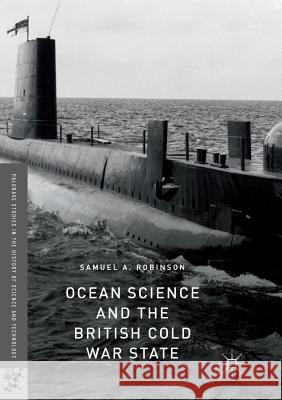Ocean Science and the British Cold War State » książka
topmenu
Ocean Science and the British Cold War State
ISBN-13: 9783030103149 / Angielski / Miękka / 2018 / 278 str.
Kategorie:
Kategorie BISAC:
Wydawca:
Palgrave MacMillan
Seria wydawnicza:
Język:
Angielski
ISBN-13:
9783030103149
Rok wydania:
2018
Dostępne języki:
Numer serii:
000423748
Ilość stron:
278
Waga:
0.35 kg
Wymiary:
21.01 x 14.81 x 1.57
Oprawa:
Miękka











